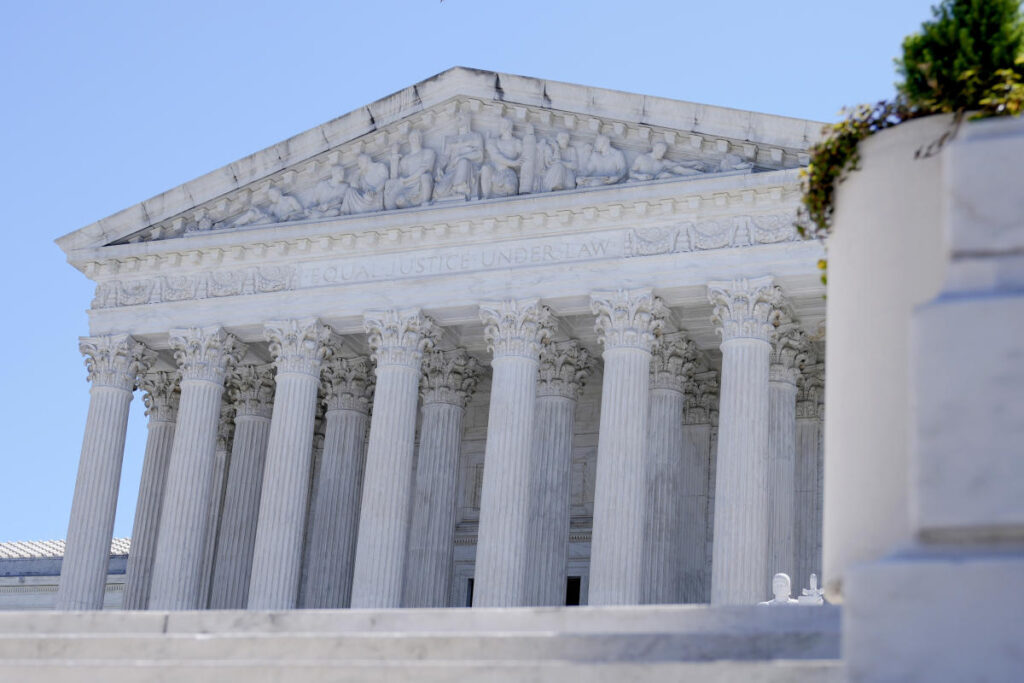The Supreme Court’s new term is set to commence on Monday, and it promises to tackle a series of significant cases, including those pertaining to transgender rights, ghost guns, and more. As the political and social landscape surrounding these issues continues to evolve, the Court’s rulings could have substantial implications. One of the pivotal cases involves a challenge by the Biden administration and families of transgender minors in Tennessee against a federal appeals court ruling that upheld the state’s ban on gender-affirming care for minors. This issue is particularly urgent as several states across the country are implementing similar restrictions, raising concerns about the rights and welfare of transgender youth and the broader implications for healthcare access.
Another critical matter on the Court’s agenda revolves around ghost guns, which are firearms that can be assembled from kits and lack serial numbers, making them difficult to trace. The Biden administration is appealing a ruling from a federal appeals court that struck down a regulation designed to mitigate the rise of these untraceable weapons. The proliferation of ghost guns has become a pressing concern for law enforcement officials and advocates for gun control, highlighting the challenges of regulating firearms in an increasingly complex political environment. The outcome of this case could significantly affect future efforts to govern firearm manufacturing and distribution.
In the realm of capital punishment, the case of Richard Glossip, a death row inmate convicted in a 1977 murder-for-hire scheme, brings forth questions of justice and due process. Oklahoma’s Republican attorney general is advocating for the Supreme Court to overturn Glossip’s conviction and death sentence, which raises broader discussions about the reliability of evidence and the legal processes surrounding capital punishment. This case not only sheds light on individual rights within the justice system but also reflects the growing national conversation about the death penalty and whether it serves as a fair and just form of punishment.
The adult entertainment industry is also seeking the Supreme Court’s attention as it challenges a provision of Texas law requiring pornographic websites to verify the ages of their users. This law, upheld by a federal appeals court, aims to prevent minors from accessing adult content but raises significant questions regarding privacy, internet freedom, and the balances between regulation and personal rights. The implications of this case touch on the tech industry’s responsibilities and the effectiveness of age verification methods in an age where digital access is almost ubiquitous.
Further complicating matters, U.S. gun manufacturers are involved in a lawsuit initiated by Mexico, which accuses them of contributing to gun violence across the border. The manufacturers are seeking to overturn an appellate ruling that allows the $10 billion lawsuit to proceed, arguing against the notion of liability for the actions undertaken with their products. This case not only has significant implications for international relations and gun regulation but also highlights the ongoing struggles between gun rights advocates and those calling for stricter gun control measures in the U.S. and beyond.
Additionally, the Nuclear Regulatory Commission is petitioning the Supreme Court to restore licenses for temporary nuclear waste storage facilities that had been invalidated by a federal appeals court. With safety and environmental concerns at the forefront, this case could set important precedents regarding nuclear waste management and regulatory authority. Simultaneously, an Ohio woman is appealing to the Court to revive her workplace discrimination lawsuit, claiming unfair job loss due to her competition with LGBTQ individuals, igniting discussions about discrimination laws and federal protections. Lastly, the Food and Drug Administration is looking to overturn a ruling that would permit the marketing of flavored e-cigarette products amid rising concerns over youth vaping, highlighting ongoing debates about public health, regulation, and the influence of the vaping industry. As these cases unfold, their implications will resonate widely across various aspects of American society and law.

